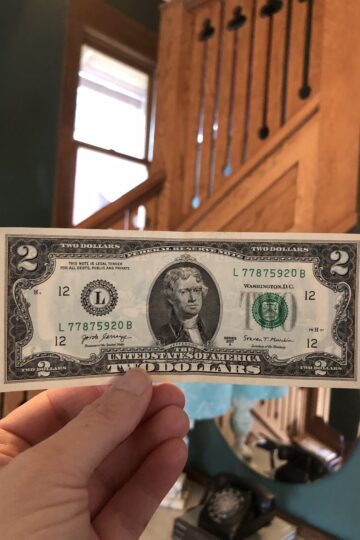Tip-O-Rama
The Non-Consumer Advocate is currently running a contest to win a book.
To enter the contest, readers have been sending in money saving tips. And wow! You guys have been doing a great job!
I had planned on writing up a synopsis of the best tips, but there's so many that I may have to spread it out over a few days.
Here are just a few of the best tips so far:
From Gerard:
1) If you wear eyeglasses, get them online for 10-30 dollars a pair instead of 300-400 dollars at opticians.
2) Find a place to live that is close to your work and stop driving so darn much. Walk. Bike.
3) Go mostly bald and use one of those lawnmower-hair clippers to deal with what is left.
4) Insulate the attic well, then repeat. Watch the heating costs go way down.
5) Learn to cook!
6) Don't hang out with people who are upwardly mobile in the conventional sense. it is tiresome and expensive.
From Deanna:
1) When mailing gifts that can be counted as "media" (such as books) request "Media Mail" at the post office. It might take a little longer to get to the destination, but it can save you a few bucks.
2) On that note, go through your dvd, cd, and book collections to find ones that you don't want or need any more. Sell them on amazon.com (you can decide your own price) and watch the clutter disappear!
3) Save all your errands for one outing. That way you'll use less gas than you would if you went back and forth from home.
4) Unplug gadgets that you don't use on a regular basis so they don't use up "phantom" electricity by staying plugged in.
5) When you go out to eat, cut your meal into two meals (this is easy since so many restaurants give big portions). Eat one half and then have the rest wrapped up for another meal the next day. This can save money and cut down on your calorie-intake in one sitting.
From Jessica:
My favorite money-saving, non-consumer tip is STOP USING PAPER TOWELS. ( This is also an environmental tip.) I use old wash cloths, cut up tee-shirts, even (ha ha) cut up boxer shorts instead of paper towels. Just use a two basket system (clean/dirty) in your pantry and wash dirty cloths with your normal loads. Easy. And cheap!!!
And lastly, from "Prairie Pastor:"
1. One of the best things we did was get rid of our Dish Network. We already have high speed internet, so many t.v. shows and movies are already available to watch there. That saved us over $50 a month. The DSL comes with the parsonage, so there's no cost there.
2. We also cut out all magazine and newspaper subscriptions. I now get my news from internet sources-including the online version of the newspaper I used to receive. Savings? Over $200 per year.
3. We use the library and paperbackswap.com for books, and I sold most of the books I didn't actively use (except for some reference books) on Amazon.com. I have found that small libraries will often order a book you recommend to add to their collections; you get to read the book you want and so do other people in your community.
4. In rural areas, driving is often a necessity. To cut down on costs, keep tires properly inflated, perform regular maintenance, and drive 60 mph or below on the highway. Of course, planning and combining trips and errands helps, too.
5. In the winter, if you do use a clothes dryer, use it in the morning to add some heat to your house. If you don't, do your baking in the morning instead of turning up the thermostat.
6. Remember that small things do make a difference, and they add up significantly!
Keep sending in those tips!
Katy Wolk-Stanley
"Use it up, wear it out, make it do or do without."



Those tips are great and include my best ones...Ever since I seriously cut down on paper towels (still use them for certain things like cooking bacon in the microwave) I noticed it is easier to clean with a washcloth anyway!
I've been meaning to add this tip, even though as your blood relative I am out of the running for the grand prize. My tip is this: don't buy from the Scholastic Book orders. Instead, go on-line and order the books your kids want from your library's web site. This works great, especially if you live somewhere where there is a good library system. For my kids, this has become as fun as ordering the books. And they can order as many as they want.
The tip about giving up publication subscriptions and taking advantage of free online content is a tricky one: The more people who give up their subscriptions, the less likely a publication will be able to continue producing the caliber of information you want. Remember, there's cost, and then there's value. Would you still want to "save" $30, $50 or even $200 on a subscription if you knew it meant that publication wouldn't be around in two years?